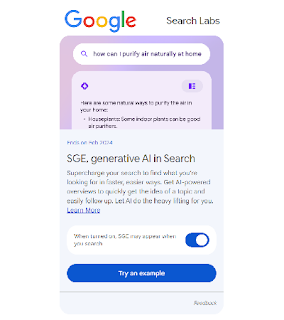AI Discovers New Antibiotic ''abaucin'' That Could Save Millions of Lives
In a major breakthrough for
the fight against antibiotic resistance, scientists have used artificial intelligence (AI) to discover a new antibiotic that can kill drug-resistant
bacteria.
The antibiotic, which
has been named abaucin, was identified by researchers at MIT and
McMaster University. The team used AI to screen a library of over 100 million
compounds, and abaucin was one of the few that showed promise in killing
drug-resistant bacteria.
In lab tests, abaucin was
able to kill a wide range of drug-resistant bacteria, including E. coli,
Pseudomonas aeruginosa, and Acinetobacter baumannii. It was also
effective against bacteria that had developed resistance to multiple
antibiotics.
Abaucin works by inhibiting
the production of lipoproteins, which are essential for the growth and survival
of bacteria. Lipoproteins are essential for the transport of lipids and other
molecules across the bacterial cell membrane. Abaucin binds to the lipoprotein
biosynthesis machinery and prevents the formation of functional lipoproteins.
This results into the death of the bacteria.
Emerging evidence suggests the effectiveness of abaucin against Acinetobacter baumannii, a superbug categorized by the World Health Organization as a "critical threat" to humanity, among three identified superbugs. In a study published in the journal Nature Microbiology, researchers from MIT and McMaster University found that abaucin was able to kill A. baumannii in lab tests. The researchers also found that abaucin was effective against A. baumannii that had developed resistance to other antibiotics.
The study's findings are significant because A. baumannii is a very difficult bacterium to treat. It is often resistant to multiple antibiotics, and it can cause serious infections in hospitals and other healthcare settings. The discovery of a new antibiotic that is effective against A. baumannii is a major breakthrough in the fight against antibiotic resistance.
The researchers are now
working to develop abaucin into a drug that can be used to treat patients. If
successful, abaucin could help to save millions of lives that are lost each
year to drug-resistant infections.
How AI Found the New
Antibiotic
The AI algorithm that
was used to discover abaucin was trained on a dataset of known antibiotics and
their chemical structures. The algorithm was then used to search for new
compounds that had similar chemical properties to the known antibiotics.
The algorithm identified
abaucin as a promising candidate because it had a unique chemical structure
that was not found in any other known antibiotics. The researchers then tested
abaucin in lab tests, and they found that it was effective in killing a wide
range of drug-resistant bacteria.
The Importance of This
Discovery
The discovery of abaucin is
a major breakthrough in the fight against antibiotic resistance. Antibiotic
resistance is a growing problem, and it is estimated that by 2050,
drug-resistant infections could kill 10 million people each year.
The development of new
antibiotics is essential to combat antibiotic resistance. However, the
traditional drug discovery process is slow and expensive, and it is becoming
increasingly difficult to find new antibiotics that are effective against
drug-resistant bacteria.
The use of AI to discover
new antibiotics is a promising new approach to drug discovery. AI can be used
to screen large libraries of compounds for new antibiotics, and it can also be
used to design new compounds that have the potential to kill drug-resistant
bacteria.
The discovery of abaucin is
a major step forward in the fight against antibiotic resistance. If successful,
abaucin could help to save millions of lives that are lost each year to
drug-resistant infections.
Here are some of the
features of abaucin:
- It is effective against a wide range of drug-resistant bacteria.
- It is also effective against bacteria that have developed resistance to multiple antibiotics.
- It has a novel mechanism of action that inhibits the production of lipoproteins.
- It is still in the early stages of development, but it has the potential to be a major breakthrough in the fight against antibiotic resistance.
Conclusion
The discovery of abaucin is a major breakthrough in the fight against
antibiotic resistance. AI is a promising new approach to drug discovery, and it
could help to save millions of lives that are lost each year to drug-resistant
infections.




Comments
Post a Comment